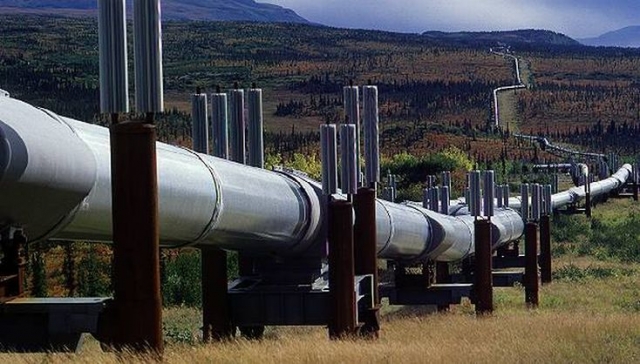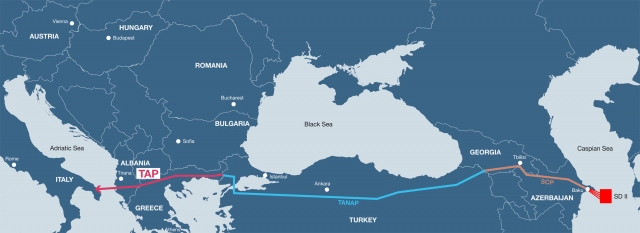Anastasia Balezdrova
After Greece and its terminal for liquefied natural gas in Revithousa, which means security for it when gas supplies are insecure, Bulgaria and Romania are also about to become independent of specific suppliers.
It is expected that this will be achieved through new projects such as the floating liquefied natural gas terminal with a capacity of 5 million cubic metres per year, which will be located in the sea in the region of Kavala. The project is developed by the Greek state gas company DEPA. Its Deputy Managing Director Spiros Paleoyiannis stated that "DEPA is unable to finance the project alone, it will be multinational. We are currently negotiating with companies from Bulgaria and Romania in relation to their involvement in it."
Security and breaking the dependence on certain energy sources were at the heart of the discussions that took place within the context of this year's Athens Energy Forum.
After selecting the TAP pipeline, which will transfer Azeri natural gas from the Shah Deniz deposit to Europe, the European governments and companies in the energy field are aimed at developing a distribution network among the countries.

One of the first steps in this direction will be the interconnector, which is expected to transfer natural gas from Greece to Bulgaria and from there to Romania and Serbia. At the conference it became clear that the development of this "vertical" pipeline is strongly supported by the governments of both countries.
"Bulgaria supports the construction of the IGB interconnector. The vertical corridor should be completed in the coming years because it is a crucial road for the supply of natural gas to Eastern and Central Europe. The TAP gas pipeline has won against the Nabucco project but with the interconnectors we will be able to develop almost the same scheme," said Bulgarian Deputy - Minister of Economy and Energy Krasin Dimitrov.
He pointed out that the best way to solve conflicts in all areas is to seek cooperation between the parties instead of imposing sanctions. "The only way to ensure energy security is to work on common projects. I hope we will achieve our goals and will be able to put the interconnector into operation by the end of the year. Everything is going according to plan for the time being and I see no reason for a delay," stated Krasin Dimitrov.
On the Greek side Secretary General of the Ministry of Foreign Affairs Panagiotis Michalos said that the final decision on the investment would be made by the end of the year and the interconnector between Greece and Bulgaria would be operational in late 2016. "The events in Ukraine have demonstrated how great is the need for a vertical corridor in Central and Eastern Europe. This will be a network of interconnectors which will be fed from the existing liquefied natural gas terminal in Revithousa, from one floating terminal and, of course, from the TAP pipeline," Michalos added.
Managing Director of state-owned energy company of Azerbaijan Socar Georgia Gas Ltd. Anar Mammadov emphasized that its decision to invest in the privatization of the Greek gas distribution company DESFA proves the support of Socar to the European Union and its desire to enhance the cooperation with it.
When asked whether the company would be able to meet the gas demand of Europe if the crisis in Ukraine deepened, he said that new deposits in Azerbaijan are currently being exploited. "Socar and the Government of Azerbaijan strictly adhere to their commitments to Europe and the crisis in Ukraine shows the importance of this," he added.

Kjetil Tungland, Chief Executive Officer of TAP pipeline expressed his satisfaction with the fact that the project had been selected to transfer Azeri gas to Europe "despite the forecast of the U.S. Ambassador to Azerbaijan Matthew Bryza who, last year at the same forum, had predicted that the winner of the competition would be the Nabucco project".
"The final contract will be signed in 2015. It is expected that the construction will start in late 2015 and early 2016, and the first gas supplies will be made in late 2019 and early 2020," he said.